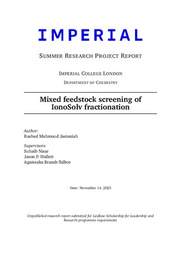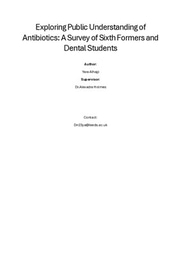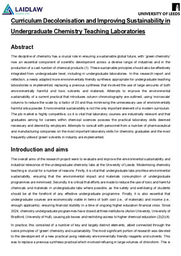Queer Lives: Narrations of Work Abroad (May 30)

The only time Chennai is quiet is the dead of night. Witching hour, some may call it, after the last trickle of people stumble home from the bar but before early-rising street vendors cast open the doors to their stalls. Anytime otherwise, every crook and corner of the city is filled with raised voices and car horns, the surrounding drone of chatter, bells and speakers and alarms – but at night, it all fades into a general buzz, low and constant, punctuated only by the family clock or the occasional shout from the roadside. It’s an almost foreign sense of calm.
I sit here awake now, only moments after the clock’s rung midnight: a low, echoing note that I’m always surprised doesn’t shift the entire floor. It’s faded now into a tin-like aftershock, hanging in the silence, set against the steady turn of the fan and the rhythm of my own breathing. Everyone else is asleep, and I should probably be as well, but I can’t help but crave the city at this hour. If I focus, I can pick apart every detail in its individuality. For several moments, all I could do was stare at the towels hanging on the clotheslines – how they bend in the wind, a bright orange stark in the dim kitchen light. There are six of them set out to dry now: blue, two white, grey, red, orange. A pink one, perhaps dislodged in the wind, lies forgotten on the concrete sill.
Night is also the best time to write, although it is proving a struggle tonight. I’ve been staring at my laptop for several minutes now, searching for where to start my story. I’m reminded starkly of a similar day nearly a year ago, sat cross-legged on a couch in Mumbai with fingers sticky from mango, listening to the soft hums of traffic through an open window. In my reflections then, I wrote in praise of everything that is small: the first press of a spoon in a pot of homemade dahi, cool water on my hot hands as I wash dishes out on the terrace, the windows left ajar to let in the morning breeze. While I won’t rehash my odes to yoghurt (though I easily could), I am once again taken aback by the smallness that can be present in such a loud and ever-moving place. In India, it’s easy to be caught up in the rush of life, but sitting here, holding my childhood stuffed animal on my lap and shuffling through a pack of cards that my paati left open on the dining table, I find the moments most precious to me.
It’s Friday, and the day begins in a true Friday manner – a slow, sleepy morning of work. Legs askew on the couch, door cracked to the sounds of my paati and Ravi Mama Thatha playing cards, I allow the early hours to blur together as I work steadily on my project plans. And for you readers out there eager to know more about the actual work side of this work blog (I did warn you there would be a fair part of food!) - stay tuned. For now, what I can share is a long, rather repetitive tale of planning and re-planning, mockup handouts and workshop questionnaires, hourly schedules and daily schedules and weekly schedules. In many ways I feel people tend to forget this side of fieldwork, which is ultimately essential. But although the litany of documents I’m sifting through do grow tiring, the effort soon pays off. After lunch, I’m due to call my supervisor at the Humsafar Trust, a kind, softspoken man who I’m eager to meet in person. Our conversation is fairly brief, but I leave it feeling re-invigorated, with dates set for our first in-person exchange and helpful advice on refining the plans I’ve made.
Setting my laptop aside, I pad out to the kitchen to join in the next game of cards. In Chennai, there’s only one game you need to know. Legally defined as a ‘game of skill’ by the Indian Supreme Court, rummy, a more challenging spin on traditional Gin Rummy, is the gateway to joining any south Indian family. The game is close to my heart; some of my earliest childhood memories feature a round-top table and a circle of family, cards flying around the glass, each player dead-focused on the hand in front of them. The fundamental concept is simple: construct four sequences from thirteen cards – one of four and three of three – that are either sequential or value-based. There are, of course, more complicated rules, but it’s not the actual gameplay itself that I hold dearly. Rummy is one of the few connections I still have with my maternal grandfather, who passed away last fall from Alzheimer’s Disease. Although he was diagnosed when I was quite young, and I therefore had an extremely limited time with him, I will always remember our games of cards. Even when he was severely affected by the illness and barely recognised me, he knew rummy. Whenever I sort through my hand of thirteen, searching for the right order, I can imagine his face as he won – he always won – and the thump of his hand against the floor as he set down his four perfect sequences.
As it turns out, memory is a running theme of the day. Just as I set my last card down, the bell rings, and I open the door to the face of a dear childhood friend who I have not seen in nearly ten years. Sam is an adult, only a year younger than I, but when I first meet her eyes, I can only see her five-year-old self, grinning wide, tucked into her family’s breakfast nook. She, her sister Sanjana, and I were attached at the hip as children, following each other around like storybook ducklings, tails tucked into our legs. The two of them moved back to India, though, and we slowly fell out of touch as we got older, overwhelmed by our own lives and distance. I expect, therefore, a slight awkwardness at our reunion, but there is none to be found. From the minute we see each other, it’s as if nothing has ever changed. I won’t say no time has passed – for it clearly has. Sam and I are both different than we were a decade ago, but the friendship between us hasn’t weakened. In fact, we discover a litany of new interests in common – at one point in the conversation, she even mentions her favourite book, and I reach into my backpack to pull out the exact same one.
The two of us stay up nearly the entire night talking, exchanging quick-fire rounds of Speed, and scooping up hot cauliflower roast in our hands. It is one of the first times in the last few days I have felt a weight off my shoulders. Around Sam, I feel almost childlike, completely carefree as we giggle around mouthfuls of chocolate. It’s hazelnut against my tongue, Sam’s eyes scrunched shut, the television ignored in the background. A small moment, one I don’t think I’ll ever forget.





Please sign in
If you are a registered user on Laidlaw Scholars Network, please sign in